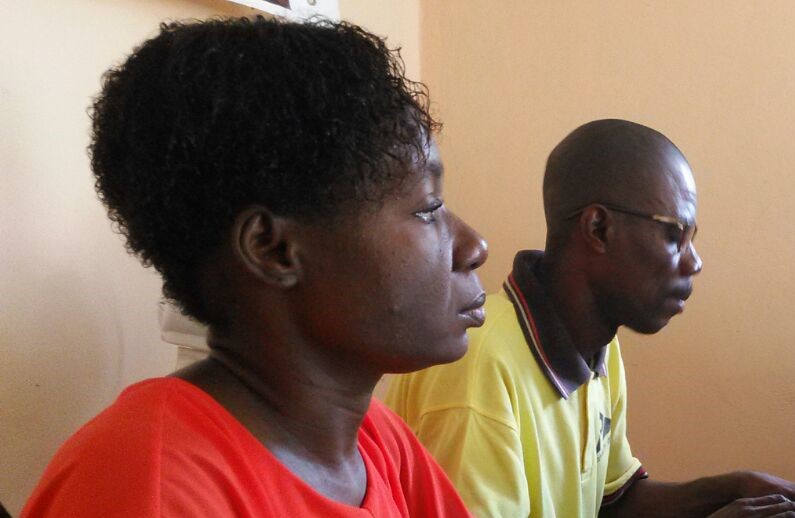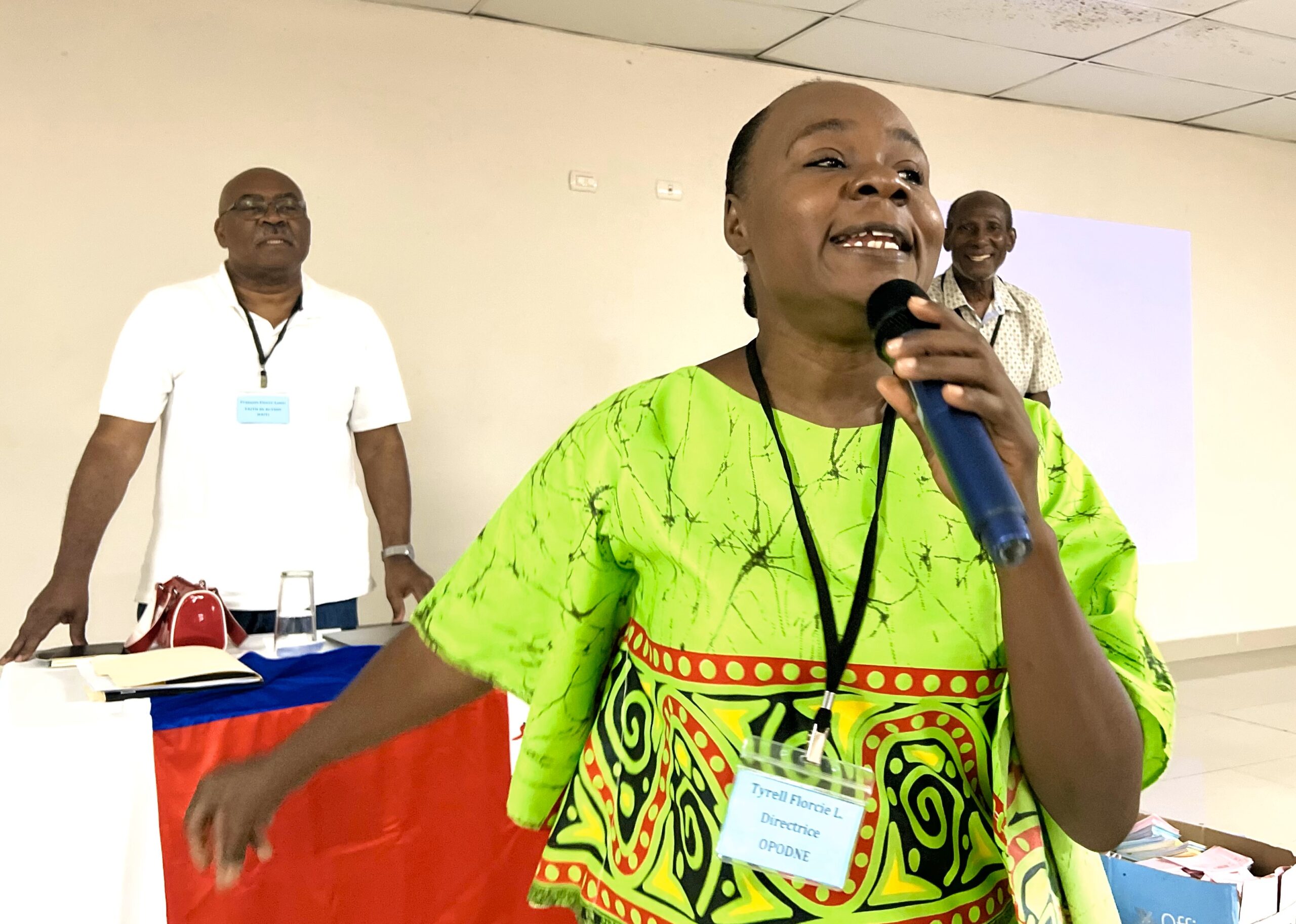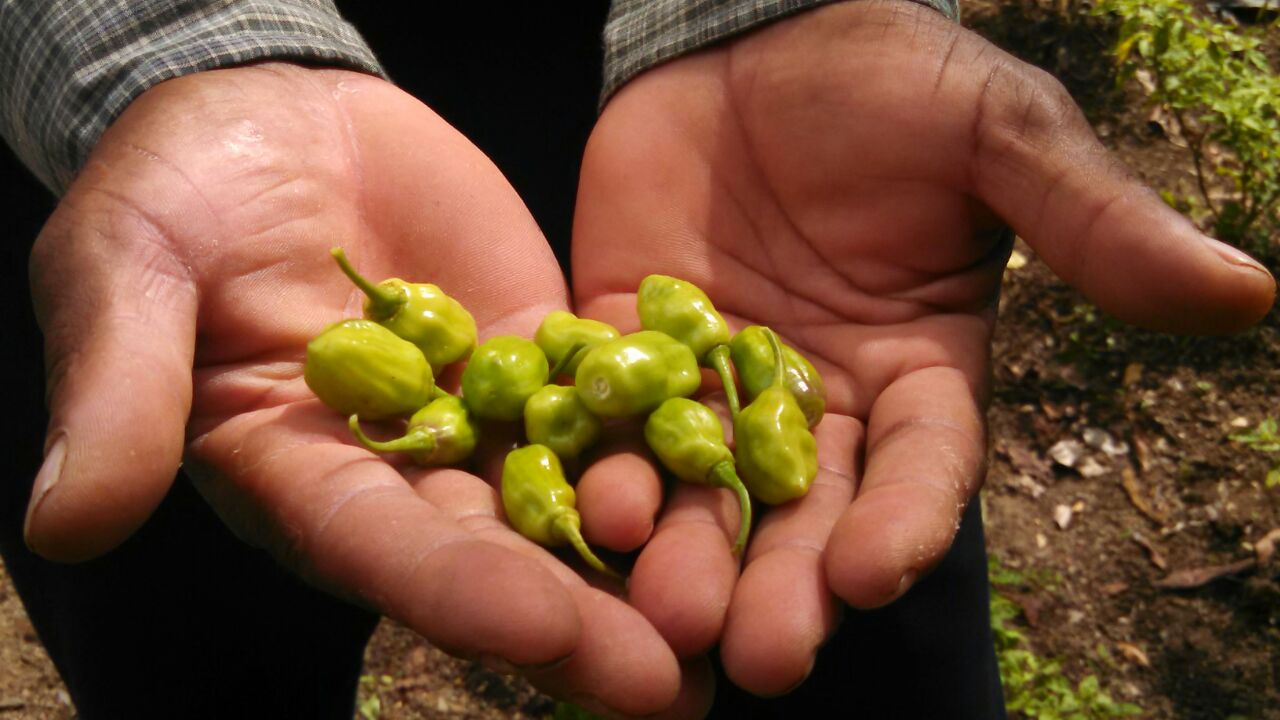“We have not been deterred by the loss of Inter-American Foundation funding for our agricultural campaign.” – Florcie Tyrell, OPODHA Executive Director In North and Northeast Haiti, Florcie Lareche…
Haiti: How modeling accountable community leadership can leverage institutional change
In 2020, OPODNE led a widely praised health education campaign relying on radio and its network of local grassroots volunteer teams to limit the spread of COVID-19 in the Northeast. The campaign reached 35,000 people through local radio shows, training for community leaders, fliers, announcements at public markets, and the distribution of masks, gloves, disinfectant, and dozens of washing stations.
This is just one example of how OPODNE provides a model for how accountable, democratic community leadership could change life in Haiti. With the economy and political system collapsed in Haiti, OPODNE’s work for the past five years has focused on building micro-lending programs and agricultural co-ops to feed their families and generate income in poor rural towns. Communities have organized their labor for basic sanitation, established computer-training centers for youth, and built roads to get their crops to market. The impact of these model efforts is significant but not sufficient.
In 2021, OPODNE plans to expand its efforts in the Northeast and start work in the North Department. We will also work to connect with the large Haitian diaspora in the United States to build the power to influence United States policy, so more resources are available to local Haitian communities. Our goal is to strengthen small-scale agriculture – which provides 40 percent of employment in Haiti – and help the country meet more of its own food needs. Success would make it possible for Haiti to invest more public resources in health and education. Local municipalities would have the funds and support to meet basic needs and undertake community planning and development. Families would gain access to electricity, water, better roads, and other infrastructure.



